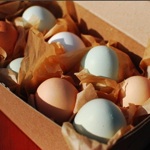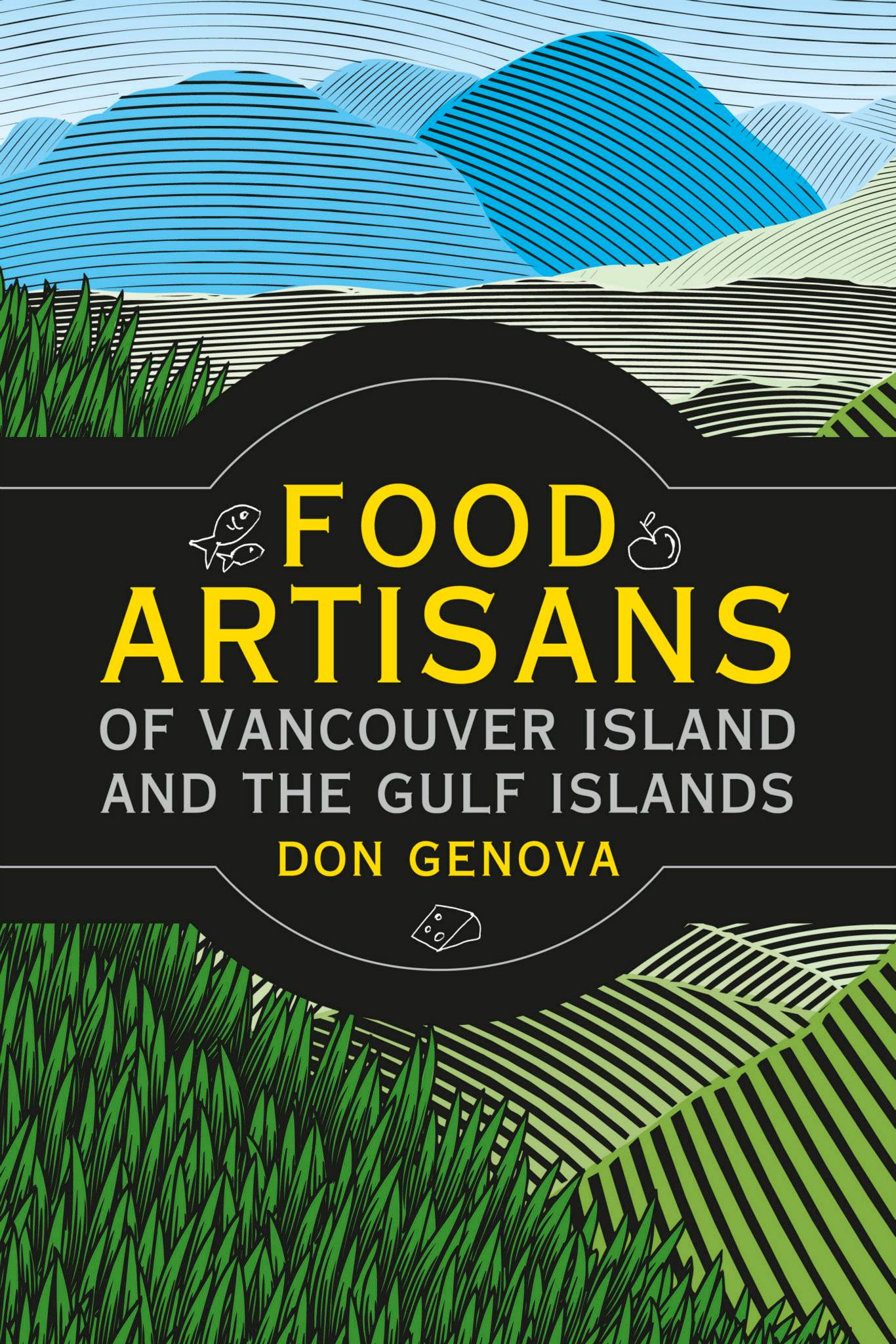
Eggs!
You can find a carton of them in almost every fridge in Canada. Canadians love eating eggs…about six BILLION eggs every year. There didn’t used to be much of a choice in eggs other than the size, small, medium, large, extra-large. Wandering into a grocery store today, though, presents us with a now-dizzying array of different kinds of eggs.
There are the ones we’re used to, plain white eggs. Small, medium, large, extra-large. Then there are brown eggs. Then there are free-run, free-range, or organic eggs. Eggs that somehow have extra omega-three fatty acids content. Then there are the eggs that you might buy at your local farmers market…how do you know what goes into them?
I spoke with Leanne McConnachie, who is the Animal Science Director of Farm Animal Programs with the Vancouver Humane Society. She told me that people are now more than ever concerned about how their eggs are produced, and she was a wealth of information when it came to the labelling distinctions.

Free range Hen
– 95 percent of the eggs produced in Canada come from so-called ‘battery hens’. In BC we are at about 85 percent. Main issues are from the animal health standpoint. A hen should have a nest, and there are no nests in the cages they are raised in. They can’t flap their wings, forage, or move anywhere. 5 to 7 birds are crammed into each cage, and there are thousands of birds in a barn. There are health implications as well, sores on feet, the birds get de-beaked so they can’t peck at each other, they often have their legs collapsing, loss of feathers. Eventually they just mostly go into dog food once they have outlived their laying life. The eggs themselves are safe to eat as certified by the Canadian Food Inspection Agency, but Leanne says how can the quality of the egg be that good when the chicken it comes from isn’t that healthy? Salmonella can be a problem since there are weaker shells because of the poor health. Avian flu of course becomes a big problem when you have that kind of density. But the jury is still out from a scientific viewpoint on this, there are some conflicting study results.
The environment is also at risk because of the amount of manure and ammonia gas produced by these chickens living in such a concentrated space. Birds are allowed to be raised like this because it’s easy. It’s very easy for farmers to produce this kind of egg, it’s more automated, you can put many many more birds in one barn because you can stack them on top of each other, it’s a commodity from a factory farm.
Alternatives: Free-run: The chicken is not in a cage. But there are no standards in force right now. Nobody checks it. Whatever the farmer says it is. Some free-run barns are not that great, they need nests and perches.
Free-range: Means they have access to outdoors.
Certified organic: Certified organic feed and pasture, one third of their lives must be spent outside. Usually an independent auditor goes around every year or 15 months to inspect the farm.
Bio-dynamic, goes beyond organic, also inspected.
Omega-3 eggs: That doesn’t mean free range. Unless it says free range or cage free, it’s an egg from a caged hen that has been given a special feed. A free range hen naturally has more omega-3 because of its higher diet of grasses and bugs. Colour in the yolks comes from the variety of diet, but it does vary. Chefs say whites are thicker and they like them better for cooking.
When you’re buying eggs at a farmers market, ask questions of the farmer. Go and visit a farm and see how the chickens are being raised.
We are seeing some encouraging changes in the egg industry right now. McDonald’s in Europe is very progressive and sourcing eggs from non-battery hens. Nothing happening in Canada with McDonald’s, though. Part of the problem is political. Supply management of eggs is run by the large cage operators.
But big companies: Compass Foods, a large food distributor, supplies cage-free eggs on demand. UVic is included, and have switched 100 percent to cage free shelled and liquid eggs.
Terra Breads, audited free run eggs. Lots of restaurants. City councils, Victoria and Duncan included. Hellman’s Mayonnaise on their ‘half the fat’ mayonnaise. And Overwaitea Foods is working with the Humane Society on labelling descriptions so you actually know what you’re getting. Green-red-yellow system as well at point of sale.
Price differences? There can be a 2-3 dollar difference per dozen eggs, but think of it more per meal, or per egg. Maybe 1 dollar more for free-run, but it comes down to pennies or up to a 25 or 50 cents more per meal. But people are still voting with their wallets to a certain extent. That’s why the Humane Society would like to see the point of purchase labelling to remind people of the benefits to the environment and to the chickens.
And what about all the municipalities that are allowing people to have backyard chickens for eggs? The Humane Society can’t in good conscience support it, would really like to see it done right with gold standards for care. It is a certain amount of work to take care of a few chickens, and even people with the best intentions sometimes find it’s too much. And there has been some ‘chicken-dumping’, particularly in Seattle where the zoo started finding chickens that had been popped over the fence into their property. For more on this go to Chicken OUT!
Update: When I was talking with Leanne McConnachie I mentioned the McDonald’s television commercial airing in Canada right now. The major selling point of the ad is that McDonald’s uses the same eggs you can buy in the grocery store. It makes no claims or mentions about where those eggs actually come from. Today Leanne sent me a link to a news story about McDonald’s in the United States ending a contract with an egg producer when the company learned of a video produced by an animal rights group showing horrendous conditions at the factory farms. You can read the story and see the video here. Warning: There are some very unpleasant images in this short video. Viewer discretion advised.
Perhaps McDonald’s should be a little more proactive in discovering just how chickens are treated by the companies that supply it with eggs.



Great article, but you forgot one important thing (especially living in B.C.).
From the BC SPCA website:
“SPCA Certified is an innovative farm certification and food-labelling program dedicated to improving farm animal welfare standards in Canada.” This makes it much easier for those of us living in the city to find eggs (as well as meat, if you are so inclined) from sources that care about the welfare of their animals. Check it out at http://www.spca.bc.ca/welfare/farm-animal-welfare/spca-certified/
Great article…I love the fact that we can still buy road-side eggs here in BC but I wonder how long that will last….
thanks for the great info!
karen
I bought Omega 3 eggs and now I know how they get the Omega 3 in the eggs. It tasted like fish so they are feeding the hens with fish meal. I will never by that again.
Apparently they feed them flax oil or linseed oil. Fish oil would be too expensive.
Honesty in advertising? yeah, I guess thats a relative thing isn’t it?
Don, I love your passion for food and how it affects our bodies and the world around us! I would love to talk with you in person if possible?? I don’t want to come across as a greener McDonalds looking to greenwash the public. Im a small farmer from Manitoba with a new grain that I honestly believe will change the world for the better. If you have never heard of Cavena Nuda please go to my website at http://www.mysmartfoods.com to check me out. Its a new grain, never seen anywhere else in the world before, and its not a GMO.
I would love to talk when I’m in Vancouver from the 22nd to the 30th.
Pingback: Food Matters - What's In An Egg?